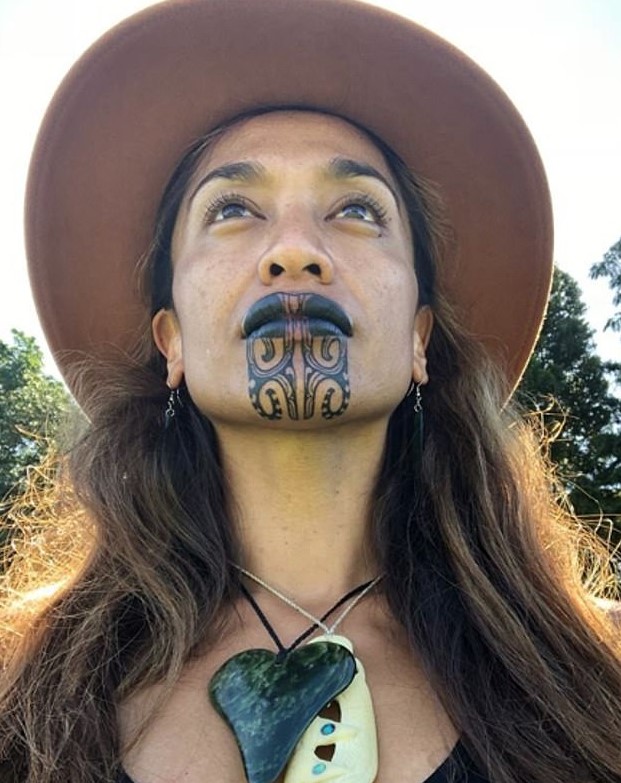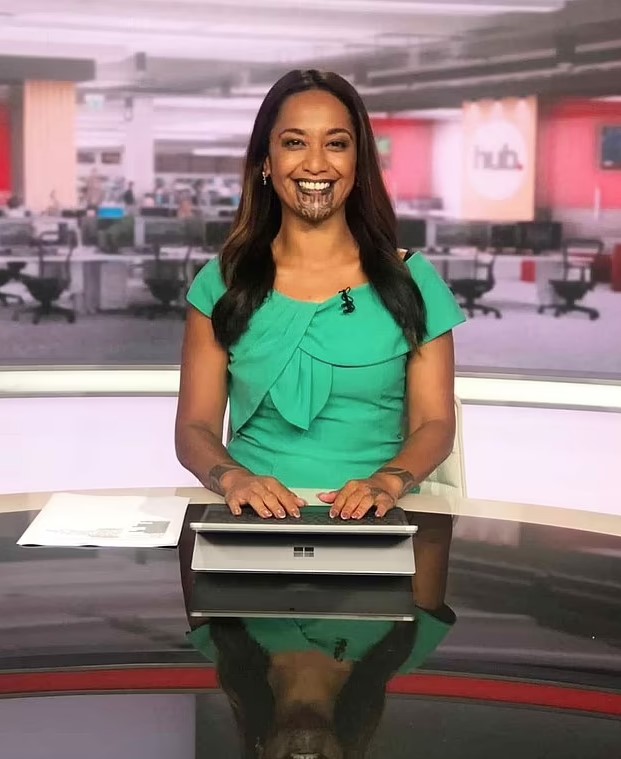
A Maori woman makes history as the first person to anchor a primetime news bulletin with a traditional lower chin tattoo, breaking barriers in the media industry and opening the way for more diversity in news broadcasting.
Māori people are an indigenous people of New Zealand, originating from Polynesian groups that migrated to the archipelago thousands of years ago.
With a deep love of nature and a profound vision of family and community bonds, Māori people have developed a unique and diverse culture.

The Māori language, known as Te Reo Māori, still plays an important role in the Māori community today.
In addition, traditional arts, such as haka dancing, whakairo sculpture, and moko kauae tattooing are also important rituals of Māori culture.
Kaipara's journey to becoming a news anchor with a traditional chin tattoo began in 2019 when she filled in for TVNZ's midday broadcast.
Recently, Oriini Kaipara garnered the attention of the public when anchored Newshub Live's 6 pm news bulletin on Monday with her moko kauae, a traditional lower chin tattoo is worn by Māori women.

37-year-old woman made history as the first person with face tattoos to present mainstream news.
Kaipara said it was the realization of a lifetime goal and hoped she would be the first of many Maori women with traditional tattoos reading the news, breaking stereotypes, and challenging beauty standards.
In Maori culture, the moko kauae is a sacred and deeply personal symbol of identity and connection to one's ancestors.
It is traditionally reserved for women who have earned the right to wear it through their contributions to their community and tribe.

For Māori women, the moko also signifies a personal transformation, marking the transition from childhood to maturity.
In a country where Māori make up around 16% of the population, their voices and views are often underrepresented in mainstream media.
Kaipara's presence as a news anchor with a traditional chin tattoo challenged this norm and brought much-needed diversity to the fore.

By wearing her moko kauae on national television, Kaipara is not only honoring her heritage but also reclaiming her cultural identity in a modern era.
"I'm very much aware that I'm the first [with moko kauae] to anchor a six o'clock primetime news bulletin," she said.
"That is always at the back of my mind, that every step I make is like breaking through a glass ceiling.
"It's breaking new ground for us as Māori, but also for people of color. Whether you've got a moko kauae or not," she concluded.




